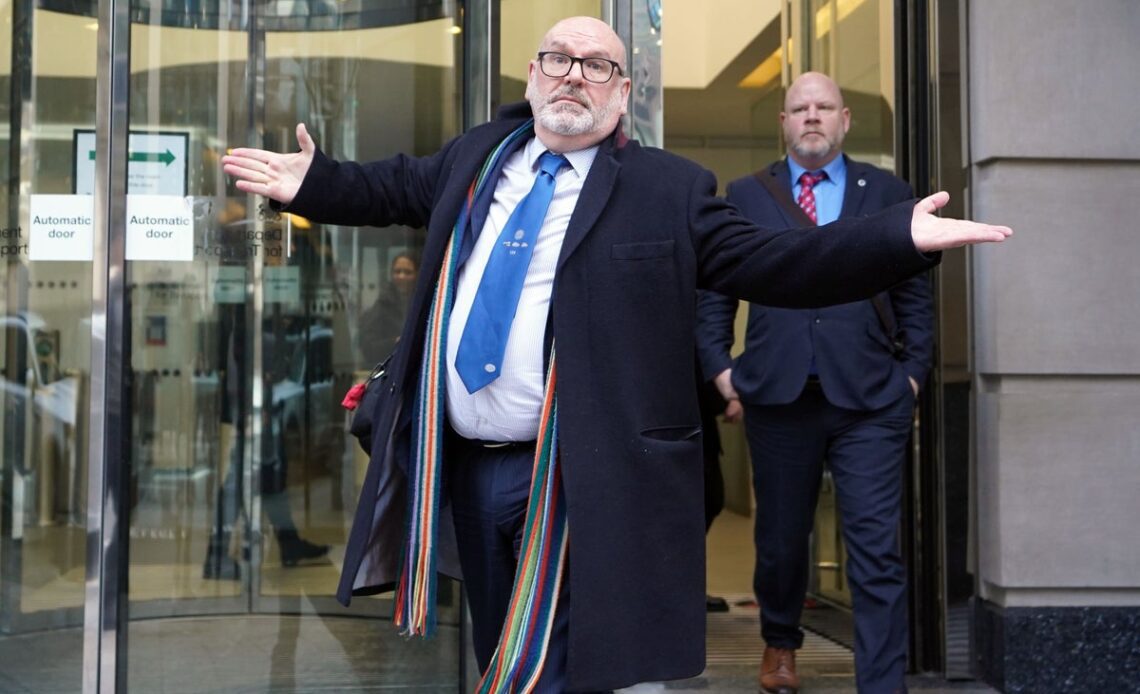The long and bitter series of rail disputes show no sign of an early settlement, the leader of the train drivers’ union has warned.
Mick Whelan, general secretary of Aslef, told MPs on the Transport Select Committee: “We’re further away than when we started.”
He had been asked by Iain Stewart, the Conservative chair of the cross-party committee, to rate progress in negotiations.
Mr Stewart asked: “How close are we to having these disputes resolved, on a scale of one to 10 – whether with one, you remain on different planets, 10, I can go out and buy a hat for the wedding. Where are we?”
The Aslef boss said: “I think you include zero in your one to 10, and we’re further away than when we started.”
Frank Ward, interim general secretary of the white-collar union, the TSSA, said: “I wouldn’t disagree with that.”
But Mick Whelan, general secretary of the main rail union, the RMT, declined to give a figure. He said: “I wouldn’t be able to say. It depends on discussions. I wouldn’t use a scale, but we haven’t got an agreement. Until we get an agreement, we’re not close to it really.”
The committee chair responded: “That’s not as optimistic as I had hoped.”
The latest round of industrial action ended on Saturday 7 January – exactly 200 days after the first national strikes since the 1980s began in June 2022. The unions are involved in a tangled series of disputes over pay, job security and working arrangements with the infrastructure provider, Network Rail, and more than a dozen train operators.
The Department for Transport (DfT), which owns Network Rail and runs some train services through subsidiaries such as LNER, is also involved.
Members of the RMT union working for Network Rail have walked out for 20 days, with an overtime ban also in effect in December and early January.
The train drivers, who are in dispute with 15 train operators, have stopped work for six days, most recently on Thursday 5 January.
The following day the Rail Delivery Group, representing train operators, offered a 4 per cent pay rise in each of 2022 and 2023 – contingent on radical changes to working practices.
The RDG described the offer as “a landmark outline proposal that would deliver more reliable services for passengers”.
But Mr Whelan told MPs: “I cannot recommend any one element of it and it may destroy the…
Click Here to Read the Full Original Article at The Independent Travel…
